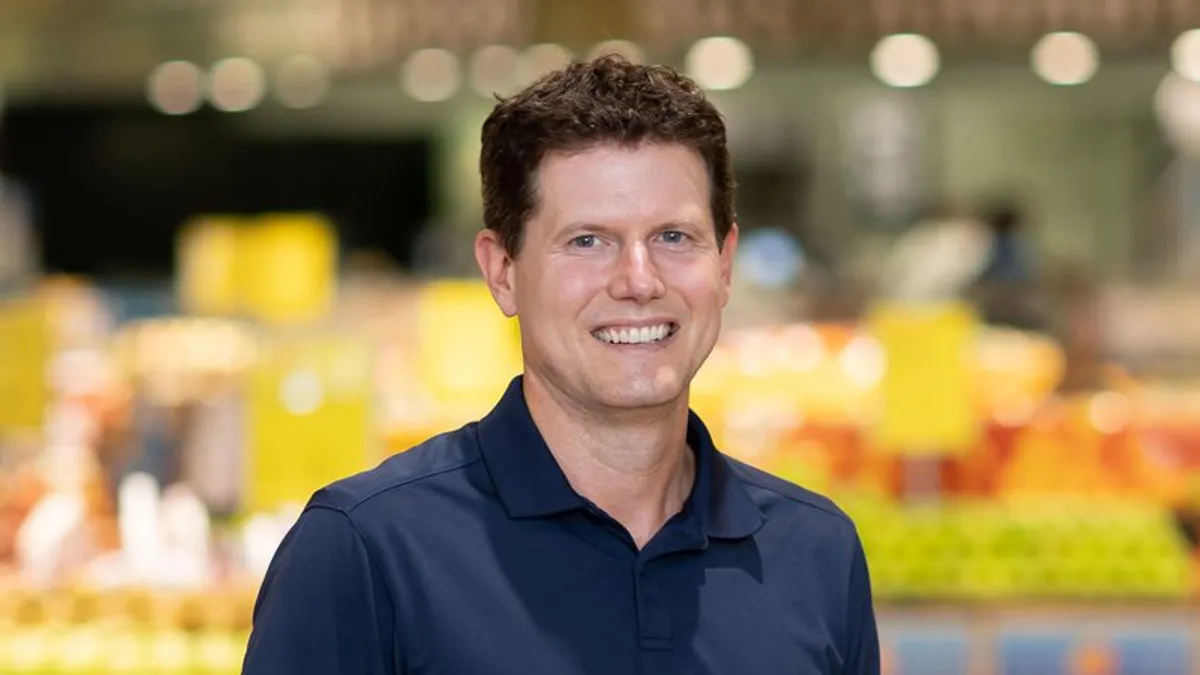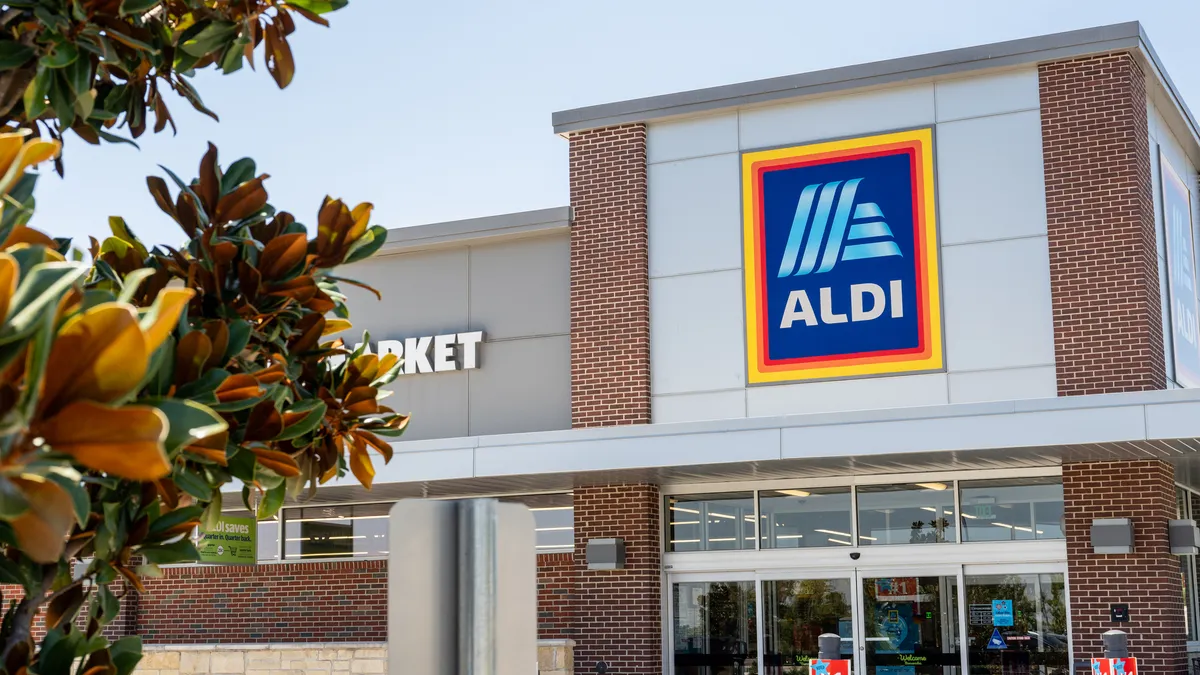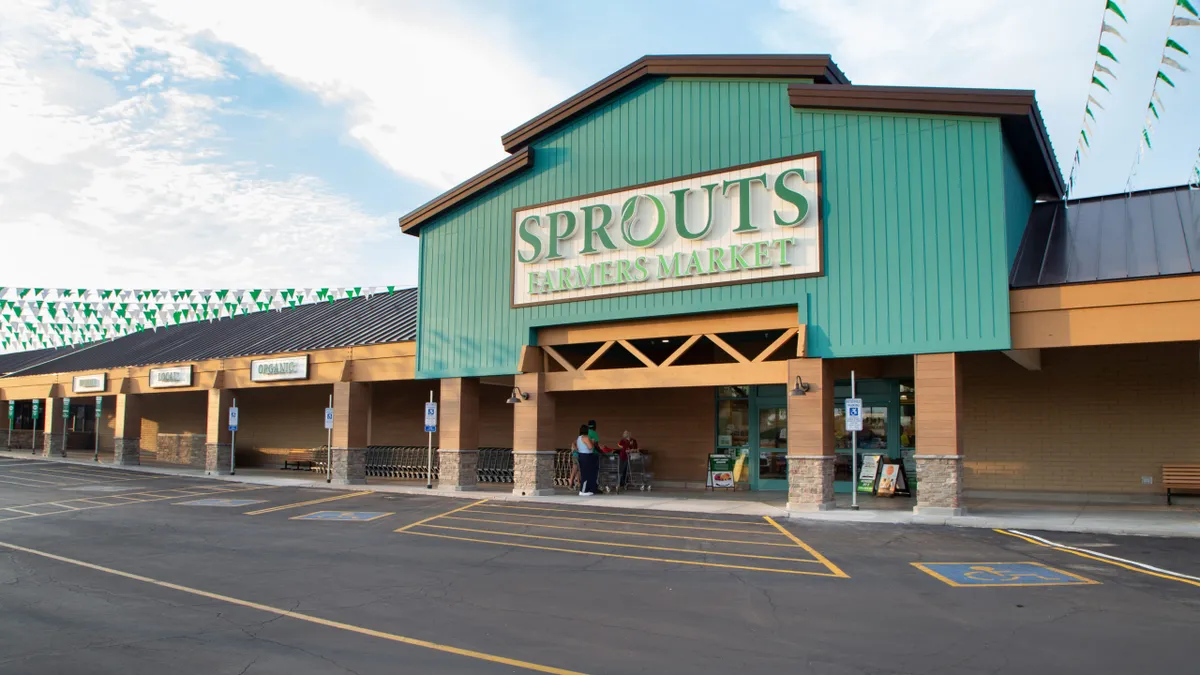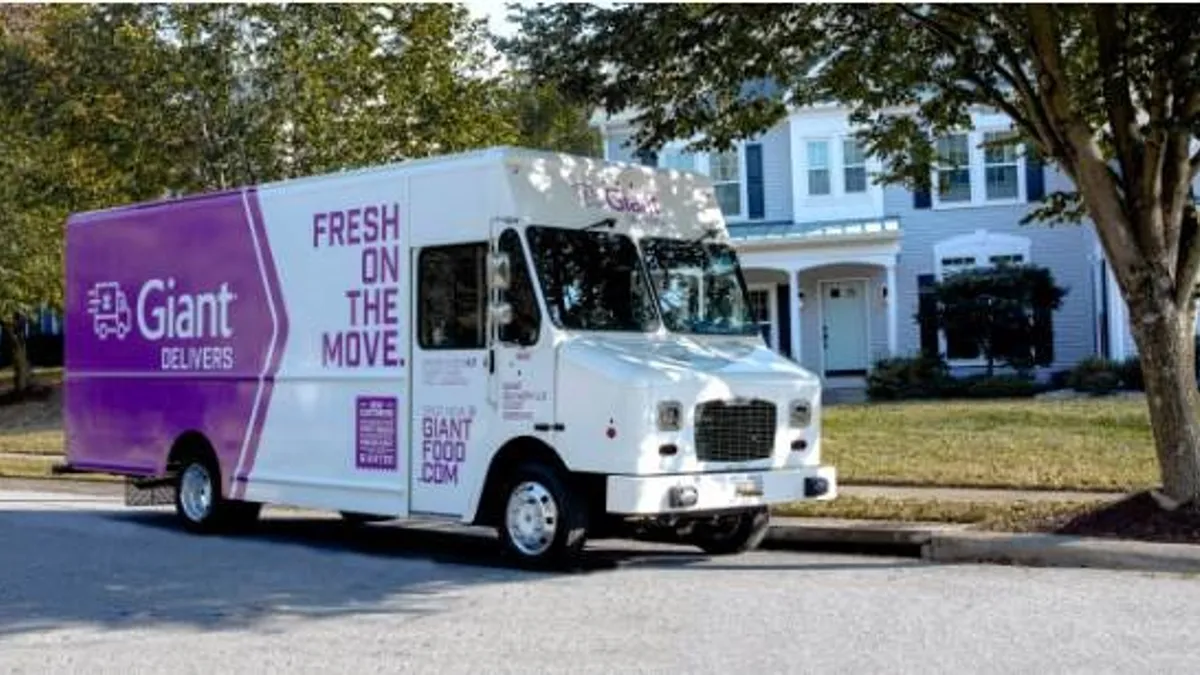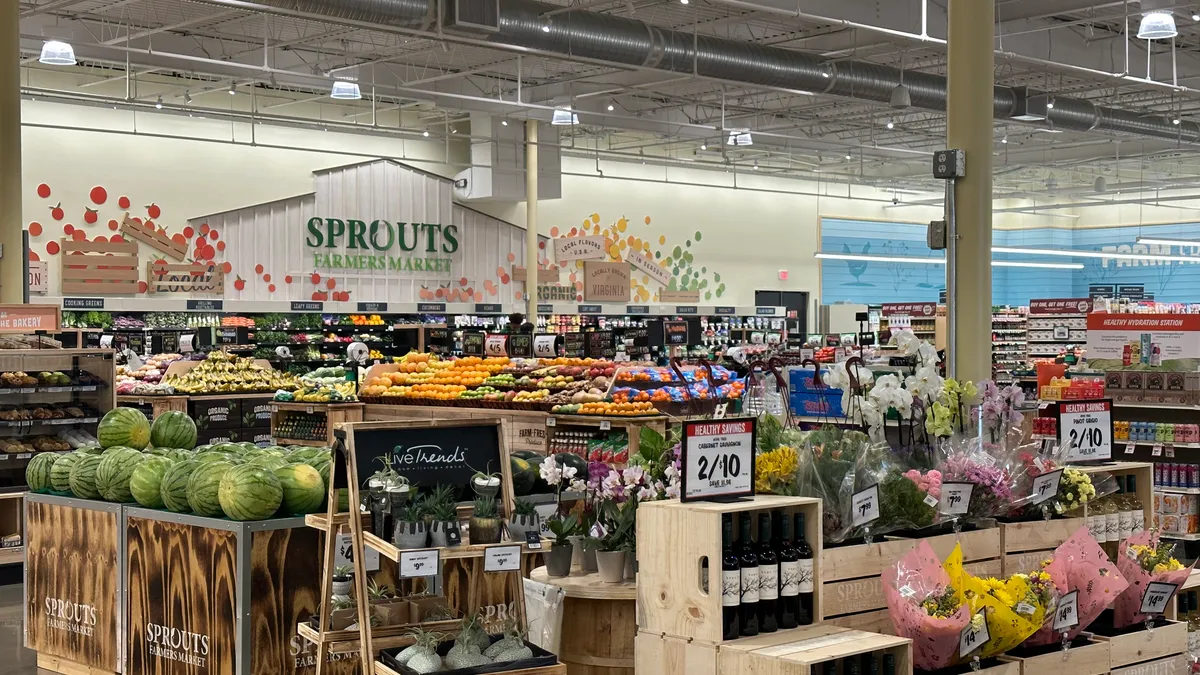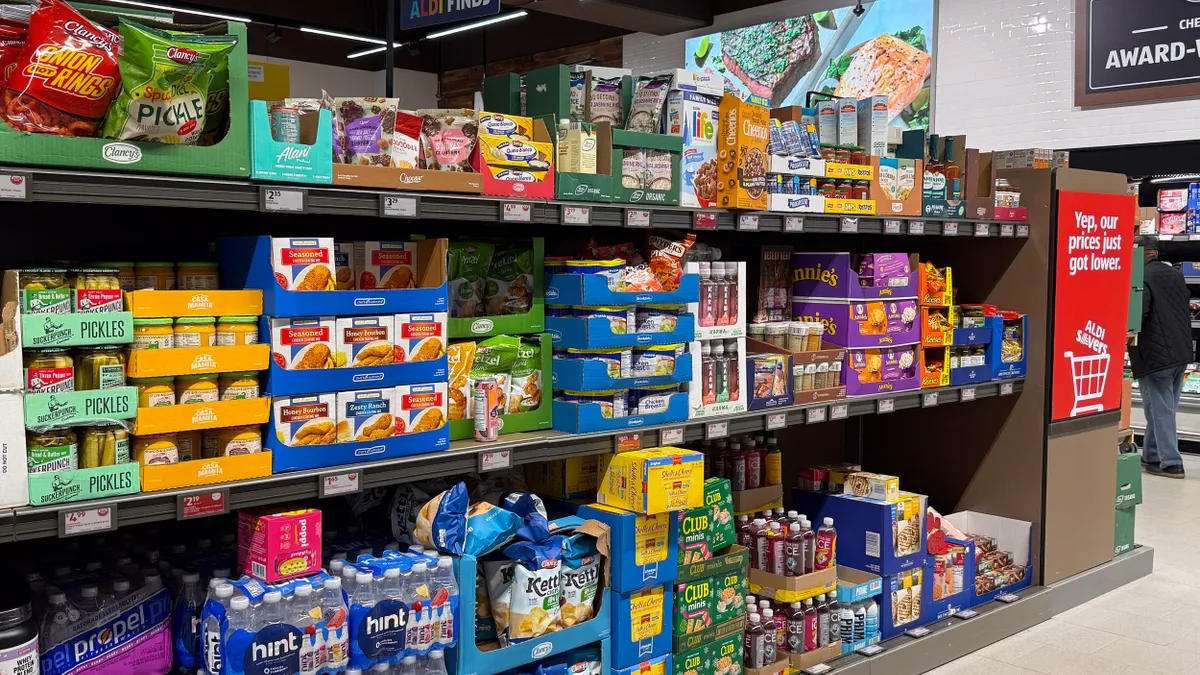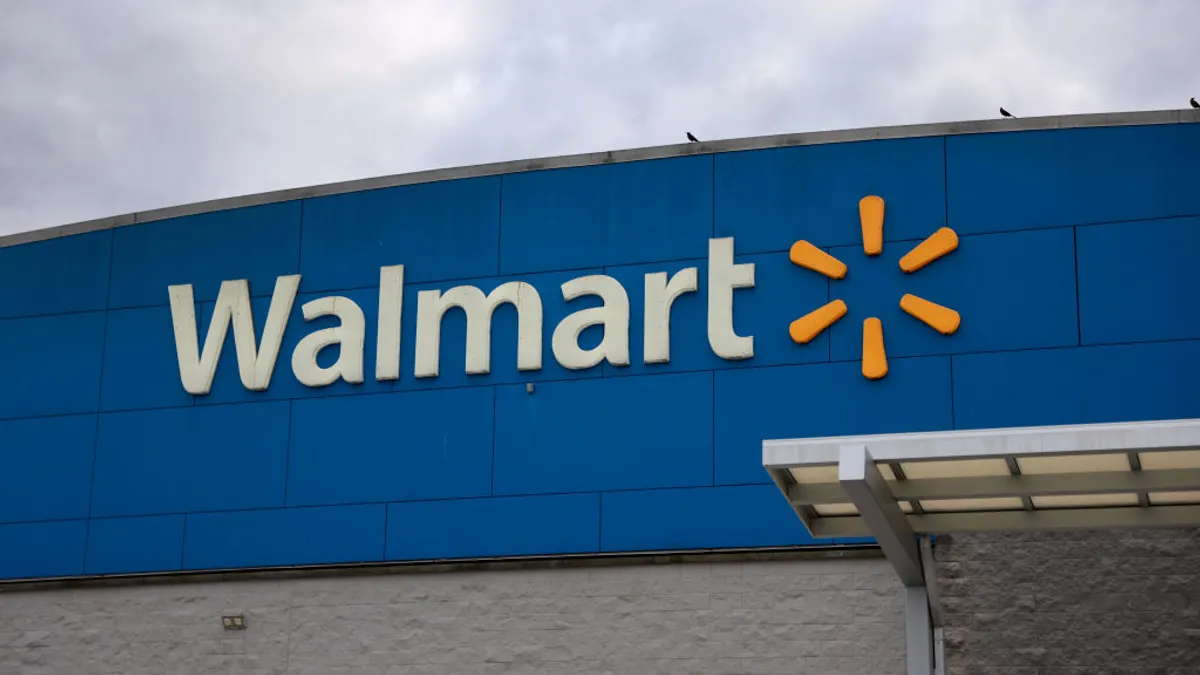What sort of company will Whole Foods Market become without John Mackey at the helm?
Industry observers are about to find out as new CEO Jason Buechel takes over the top role starting today. Buechel, who joined Whole Foods in 2013 from Accenture and most recently served as the specialty grocer’s chief information officer, will oversee a company that’s spent a little more than five years under the ownership of Amazon, and now faces some significant decisions over how to forge ahead in a rapidly evolving industry.
In those five years, Whole Foods has integrated some Amazon technologies and services — like Prime membership — into its operations. It has also accelerated efficiency measures like centralized purchasing that it started before the acquisition. But its brand and identity as a specialty grocer professing a commitment to local, organic and natural foods has largely remained intact.
Will Whole Foods deepen its integration with Amazon operations and technology under Buechel’s leadership? That’s a question that experts interviewed recently by Grocery Dive were eager to answer. Some believe the e-commerce company’s cutting-edge tech — like Just Walk Out frictionless checkout, which has started to creep into Whole Foods locations — can offer a major draw for the specialty grocer at scale. Others question whether Amazon, which recently slashed its store lineup, should be calling the shots when it comes to running physical locations.

Whole Foods no longer directly reports earnings, but a look at Amazon’s physical store sales over the past few years show the grocer has performed adequately at best. Experts were nearly unanimous in noting that one of Buechel’s top priorities should be to work on honing Whole Foods’ identity and differentiating it from conventional and specialty competitors.
“This is an opportunity to bring a new perspective to Whole Foods Market,” said Stewart Samuel, program director with IGD, noting that Buechel could become a “catalyst for change” to help the grocer stand out in the market.
Here’s what five experts say about what Buechel’s priorities should be, and the challenges Whole Foods faces in the coming years.
Celia Van Wickel — senior director of digital commerce at Kantar
Buechel said during The Wall Street Journal’s Global Food Forum in June that Whole Foods has “always been a purpose-driven organization and reconnecting to those roots, I think, is really important.”
Van Wickel interprets that comment as a reference to Whole Foods being the leader in natural and organic grocery in its pre-Amazon days. But Whole Foods, like other specialty grocers, is finding that’s no longer enough of a differentiator as more retailers lean into health and wellness with their food assortment, she noted.
“[Whole Foods] can still bank on that kind of strategy but they have to get ahead of the trends now,” Van Wickel said.

Whole Foods is “synonymous” now with Amazon, Van Wickel said. Amazon has been integrating its pricing, Prime membership and technology, where possible, into the banner to bring additional value and gain more customer data. For Buechel, Van Wickel says a main challenge will be determining how Whole Foods differentiates itself within Amazon’s larger grocery strategy, while also driving experience for the banner’s core customers.
If Buechel wants to retain the niche base of higher income, environmentally-minded shoppers, honing in on sustainability could help Whole Foods while bolstering Amazon’s climate efforts, Van Wickel said.
Van Wickel said Buechel could tap into his background at Accenture — a “very innovation forward company” that is “Amazon-like” — to help boost the grocer: “Thinking strategy, innovation, I think it's something that Whole Foods needs, and if he can position to their core values as well as the low prices, monitoring and maintaining the value production, which is still in flux, that could be beneficial.”
David Browne — consultant to natural and specialty food retailers and suppliers
Browne, a former manager in the retailer’s Whole Body division, speaks frequently with company employees and advises suppliers that work with it. He said that Whole Foods has become less communicative with its workers and has a less clearly defined company culture since Amazon took over. Workers, he said, have felt “locked out” from company developments.
Browne thinks Buechel should help improve communication up and down the company ladder while also taking steps to make Whole Foods a more engaging place to work — especially on the heels of a pandemic that has soured many employees on working at grocery stores.

In his first-day note to employees, Buechel said company executives will visit every Whole Foods store, and noted he will regularly share his thoughts and company updates with workers.
“[Jason] seems to be very well suited to improving the culture of the company and sort of reframing the relationship of leadership to the team member base,” Browne said.
He also believes Whole Foods has to work on its relationship with suppliers. Browne works with numerous brands that said they’ve had to wait a year or more after signing an agreement with the company or rolling out a line extension to see their products on shelves.
“Whole Foods has done a good job of conveying the importance of local and regional brands…. But if on the back end there’s this tremendous lag, that’s a really big problem,” he said
Anne Mezzenga — co-CEO of Omnitalk
Mezzenga believes that Buechel’s background and well-versed understanding of operations in the grocery industry will bring forward the right priorities for Whole Foods.
"You really have to be focused and dialed in on how you're making operations as efficient as possible, how you're still trying to earn money or cut costs in the right ways to keep the organization going. And then the massive elephant in the room of being a part of Amazon now and how you kind of maintain that identity."
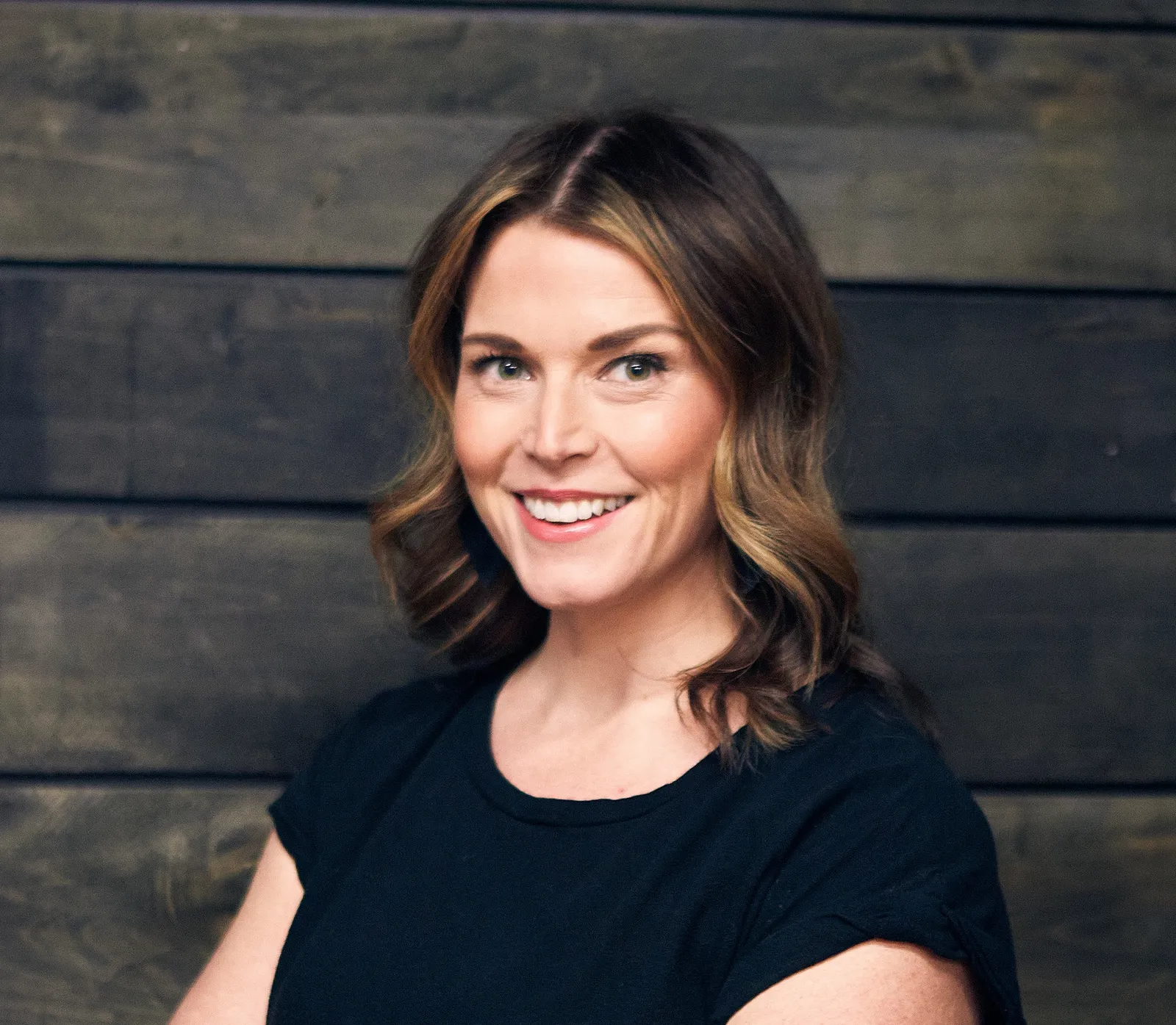
According to Mezzenga, there is an expectation to press on with Amazon’s technology— including frictionless checkout and palm payment— while also remaining true to the Whole Foods brand image of providing organic, locally sourced products.
But the company has to focus on cutting costs, increasing revenue and better meeting customer needs in addition to prioritizing the implementation of new Amazon technology, Mezzenga said. In addition, Mezzenga said she believes the company will bring inventory accuracy to the forefront with Buechel as CEO, especially given the new leader’s history in operations.
Neil Saunders — managing director of GlobalData
Saunders believes Whole Foods is missing out on sales because many consumers view its stores as places to find items they can’t buy elsewhere rather than as their primary supermarket. To remedy that, he said Buechel should dial back the company’s traditional emphasis on products deemed to be “healthy” and carry more mainstream brands.
“Most people are not shopping based on health. They're shopping because they want to have a great food experience,” Saunders said.
Saunders also said Whole Foods should take steps like improving its prepared foods selection and lowering prices to hold onto customers. “I think Whole Foods’ current position is okay. But I don't think it's strongly differentiated enough to drive success in a more and more crowded grocery market,” he said.

Still, Saunders said Buechel should tread carefully in tinkering with Whole Foods’ image. “There should be some more assertiveness around just dragging Whole Foods out of its niche a little bit,” he said. “But it has to be done with great care because you don’t want to reduce the quality and the provenance of the food and the excitement about the offer.”
The fact that Buechel was not part of the company during its formative years could lead it to become more closely aligned with Amazon’s other grocery businesses than it has been with Mackey at the helm, Saunders said. At the same time, the company runs the risk that it could lose its touch with shoppers as it moved ahead under the leadership of someone without the close personal ties Mackey has to the business.
“I think the danger of putting in charge somebody who is from a non-grocery background is that you could lose the touch and the flair around food, because Whole Foods is very much tied into being a foodie destination,” Saunders said.
Stewart Samuel — program director with IGD
Samuel believes that conventional retailers have closed the gap with Whole Foods in key areas like product assortment, e-commerce and health marketing. But the specialty grocer’s in-store shopping experience is still best-in-class, he said. One of Buechel’s top priorities should be continuing to hone and evolve that store experience, he said.
“There’s a heritage in design, and they’ve become famous by launching brilliant stores into the market,” Samuel said.

Whole Foods has moved beyond wood paneling and other farmstand touches and now offers a more modern spin on specialty retailing, he noted, citing a store that opened yesterday in Culver City, California, that includes uniquely branded made-to-order dining options including pizza, sandwiches, burgers and vegan fare. With the addition of tech-enhanced checkout options, from self-checkout stations to smart carts to frictionless, the retailer can add another layer of convenience that could resonate with a broader array of shoppers than it currently serves.
As Whole Foods looks to further expand its shopper base and build baskets, Samuel said the company should look to e-commerce. There, the grocer could expand its assortment to include more mainstream brands, including Amazon private labels like Aplenty. Whole Foods shoppers may not yet be ready for Coca-Cola cases — but online, it could be a different story.
“If they want to appeal to a broader range of shoppers, they need to have a broader range of brands in the portfolio,” Samuel said.

